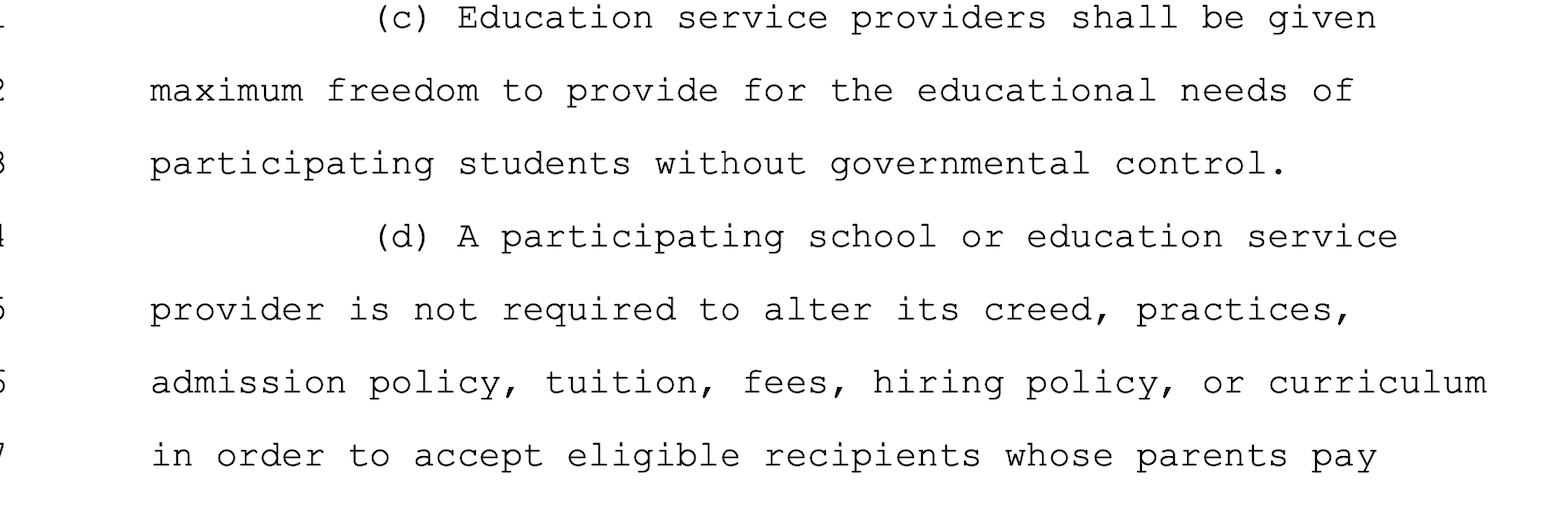Reaction is now coming forth from those within education policy-making about the newly offered school choice bill in the Alabama legislature. State Sen. Del Marsh and State Representative Charlotte Meadows introduced companion bills into the Senate and House this week. That bill is called the Parent Choice Act (PCA). Marsh is introducing the bill as part of his last endeavors as a state senator since he will not be seeking re-election.
The PCA seeks to put money back into the hands of parents for them to leverage as they see fit in the education of their children in the school of their choosing. That money will reside in Education Savings Accounts for the parent to access in paying school tuition and fees.
The bill also creates a board of parents who will be appointed by the governor to serve in three-year terms. The goal of the parent board is to establish the administrative criteria and regulations for Education Savings Accounts, verification and eligibility of students, the listing of participating schools, and the financial transferral process from the state treasury to the parent’s ESA rather than directly to the schools.
The chief executive officer for the Alabama Christian Education Association, J. Robin Mears, has read the bill. Mears spoke with 1819 News about his overall understanding of the legislation as a step forward for parents’ choice and alternative options in educating young Alabamians. Mears was also looking for any language that might hamstring a faith-based school in limiting how it can operate in order to participate in the program.
“There is a clear statement of a non-interference policy of the state with non-public schools participating in the program, so I think that’s a good thing.”
Mears is referring to Section 12 of the bill:


“The conduit who is getting the money is the parent, and they, in turn, choose how to spend the money to meet the educational requirements for the child. The real burden from that standpoint is on the parent,” Mears said.
Mears did express one concern with the bill regarding the parent board created to oversee this program. In particular, he is concerned about creating regulations or ratings for schools. Mears says there needs to be more clarity on what criteria will be used to create those ratings and regulations.
“Once you put something into administrative code, that’s how the law is applied," said Mears. "It actually carries more weight than the actual law itself, since regulations become the governing structure. So, that’s the bigger thing I find to be problematic, that the language (for the parent board) is open-ended."
Mears says he thinks an amendment will be offered by a state lawmaker that adds more clarity to that portion of the bill.
Overall, Mears is very hopeful that this bill will push Alabama forward in improving the teaching of students and giving parents more options.
Mears said, “Is the bill a sound concept that should work and can work? Yes. This model has been done in other states. Do I think there are some things that may need to be cleaned up relative to how it may adversely impact non-public education and home educators? That too.”
Mears has worked for 33 years in Christian education and as such has seen a lot of different bills come forth in the Alabama legislature on the issue. As part of his job within the ACEA Mears is the registered lobbyist to engage with legislators about the language and policies within varying education bills. Mears says that this year a school choice bill is truly poised to be passed due to the ongoing teacher shortage that Alabama is facing and will continue to face in the years ahead.
Mears said, “I think that’s the one thing that should move this bill because it’s in favor of doing something in the state to better spend the educational dollar because Alabama is not set up well to recruit teachers.
"In tracking education in Alabama, a lot of things have been tried. The latest is Common Core. The state has looked to two things to raise educational achievement- Common Core, and Pre-K and neither one of those programs have worked. Now the state is really going to tout Pre-K, but there are enough kids educated in Pre-K at this point to improve state scores by grade four, but the scores have actually gone down. Somebody somewhere is saying things and selling things that are not working."
Mears closed by saying, "In my experience, something drastic must be done, and that’s what this bill will do, put more power into the hands of the people to enable them to make choices for their children and tie them to a school that treats them more as a consumer with something the school must deliver rather than someone who is just meeting mandatory education requirements. That’s not to imply that every school or every public educator is uncaring but somehow the model of education in Alabama is not sufficient to improve it. And so this bill is a pretty drastic or novel way to put the power back into the hands of the people”
To connect with the author of this story, or to comment, email news@1819News.com.










